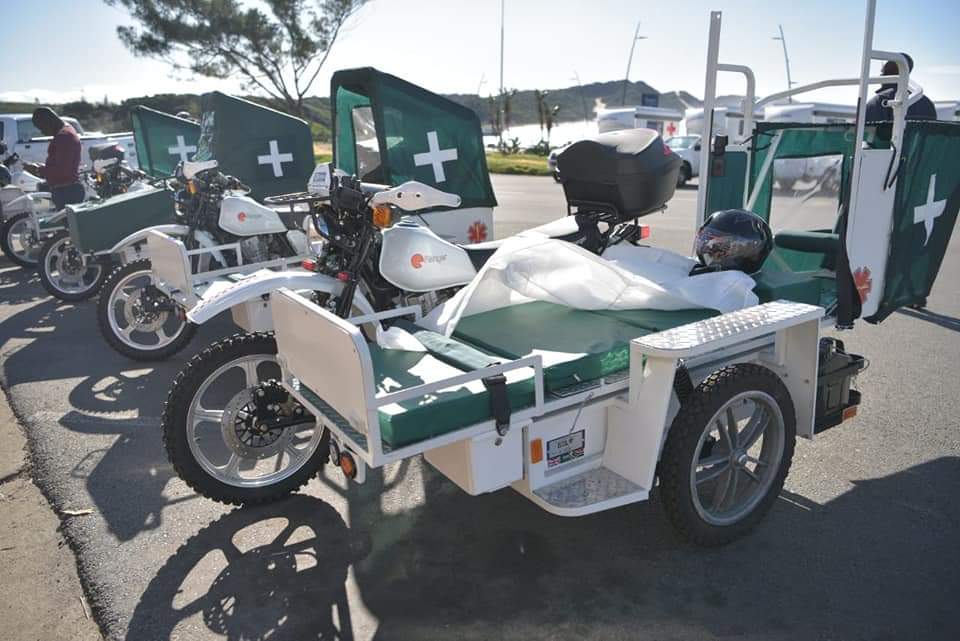CHARLES MOLELE
LATEST DATA and statistics on the coronavirus pandemic in the Eastern Cape are frightening. From the deep rural villages of eastern Pondoland to the bright lights of Port Elizabeth, coronavirus infections are now edging towards the 10 000 mark.
The fight against COVID-19 pandemic in the Eastern Cape, which accounts for the largest amount of out-migrants in the country, is worsened by several challenges, including rough terrain and inaccessible roads in a largely rural district
On June 16, the Eastern Cape will mark 88 days since “Patient Zero” – a 28-year-old employee of Mercedes Benz South Africa, became the first infection recorded in the Eastern Cape in March.
Since then, 217 people have died and at least 9 250 people have tested positive.
Within four days of reopening of schools on June 8, teaching at 77 Eastern Cape schools was affected – some due to confirmed COVID-19 cases and others as a result of suspected cases.
The provincial education department spokesperson Loyiso Pulumani confirmed this week that 77 schools in the province were affected by COVID-19.
“As the first week of learning and teaching occurs, we wish to confirm that across the province we have 20 positive cases of COVID-19 within the schooling system,” said Pulumani.
“We have 15 teachers, three pupils and two non-teaching staff who have contracted COVID-19. We also confirm that we have 48 persons under investigation in the province, according to our statistics.”
Department of Health spokesperson Sizwe Kupelo said this is the first time that the Eastern Cape has experienced such a traumatic and overwhelming public-health emergency.
“I have been in the department for 18 years. In those years we’ve never experienced any outbreaks originating from the Eastern Cape – all cases of cholera or typhoid, for instance, came to the Eastern Cape due to the migration of workers from other provinces like Gauteng and the Western Cape. When we had cholera for the first time, it was imported from Tembisa in Gauteng,” said Kupelo, citing ‘patient zero’ of Mercedes Benz South Africa who travelled from Germany and became the first person to test positive for COVID-19 in the Eastern Cape.
“After patient zero, more cases from Gauteng and the Western Cape ended up here. Soon after President Cyril Ramaphosa announced the lockdown, a person died in the Western Cape from COVID-19 and was transported to the province in minibus taxi. People then attended the funeral and spread the disease.”
Kupelo said two funerals held in Kwadwesi and Zwide townships in Port Elizabeth in the Nelson Mandela Bay metro became the coronavirus hotspot after hundreds of people attended the funeral, ignored lockdown regulations and contracted the disease.
Out of these two funerals in Port Elizabeth in May, 54 people ended up being infected, including three children.
“A funeral of a prison warden in Majola village, Port St Johns, is another case in point. We ended up with 43 COVID-19 cases from the same funeral – 12 from one family. From the on the floodgates opened,” said Kupelo.
Kupelo said the Eastern Cape has over 1.5 million people who have left the province in search of greener pastures elsewhere in South Africa and their return to the province during the lockdown worsened the spread of the pandemic.
He said law enforcement agencies have also been lacking in the villages during the lockdown.
“There’s never been police or SA National Defence Force in the Eastern Cape villages and this led to a total disregard of social distancing protocols. Now the virus is here and government must do something,” said Kupelo.
“We want to call on law enforcement agencies to deal decisively with anyone in the Eastern Cap found to be in contravention of the National State of Disaster regulations that have been gazetted.”
This week, 100 scooters were provided for health workers to do their fieldwork in the province as part of a concerted effort to fight COVID-19 pandemic.
Other measures announced by the Eastern Cape Department of Health include the appointment of unemployed nurses on 12-month contracts, the deployment of health officials to assist with screening motorists and passengers, and the appointment of a medical team, including paramedics and pharmacists to help.
Kupelo said the provincial government’s COVID-19 response has also been hampered by some health workers affiliated to the National Education, Health and Allied Workers’ Union (NEHAWU) refusing to treat COVID-19 patients.
“They complained about all sorts of things including lack of deep cleaning of hospitals. They also started using the non-availability personal protective equipment as an excuse. Lately they are coming to say they’ve not been trained to treat COVID-19. I dispute their claims. I am saying primary health care workers were deployed to villages to do mass screening and testing and they have screened more than 1 million people in the province and tested 30 000. These primary healthcare workers are all not positive. So why use all these things as an excuse,” asked Kupelo.
“Some of our patients died a lonely death because nurses refused to treat them. They died alone because they nurses didn’t want to look after them.”
According to the National Association of School Governing Bodies, most of the schools affected by COVID-19 were in the Buffalo City Metro (BCM), incorporating East London, King William’s Town, the capital Bhisho and surrounding rural settlements.
(Compiled by Inside Education staff)







seo paketleri, seo hizmeti, seo satın al
seo paketleri, seo hizmeti, seo satın al
seo paketleri, seo hizmeti, seo satın al